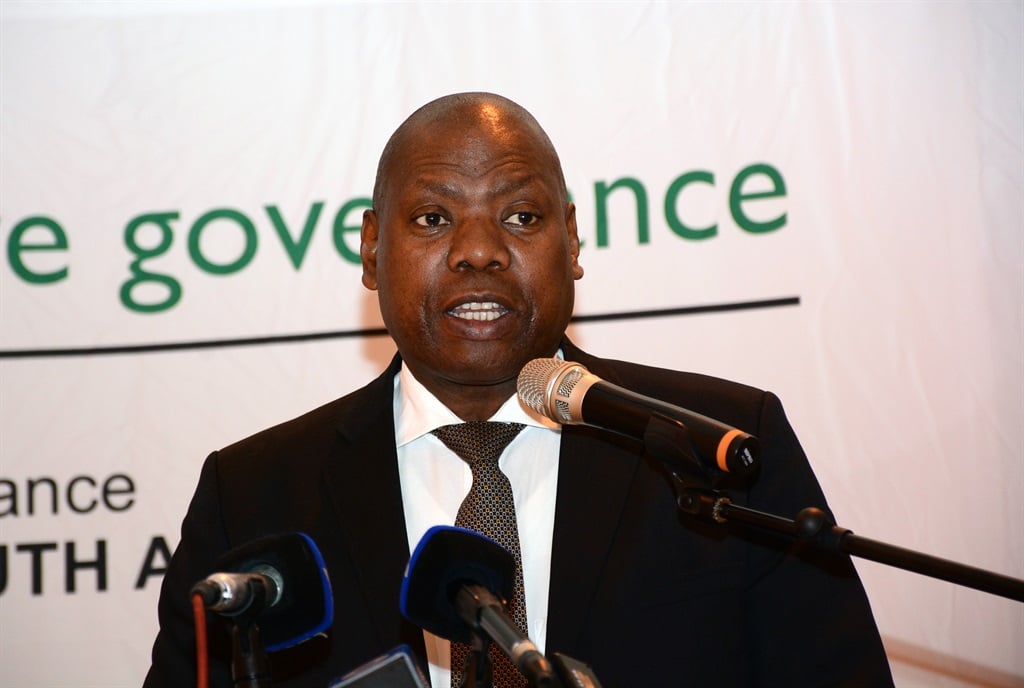
If businesses and households generate their own solar power it will have a negative effect on municipal revenue generation, but municipalities will need to find a role to play in this new development, says Dr Zweli Mkhize, minister of cooperative governance and traditional affairs.
Mkhize was addressing the Association of Municipal Electricity Utilities’ technical convention in Pretoria on Monday.
“Development is impossible without energy. Our industries, government departments, households, streets, hospitals and schools need energy to keep running. You are engaged in the important business of supplying this important resource,” Mkhize told the delegates.
The future of the generation, transmission and distribution of energy was changing rapidly and it was vital that municipalities kept on track, he said.
The government wanted to provide all citizens with access to basic services. This meant that all forms of energy generation should be employed, from traditional coal-fired generation plants through to hydro plants, solar farms, wind turbines and small embedded generation.
Nearly 190 municipalities were licensed through the National Electricity Regulator of South Africa to distribute electricity to consumers.
“Already this space occupied by local municipalities is becoming more complex as other forms of electricity generation are becoming effective. Renewable energy is changing the face of the energy game and municipalities are responding, simply to provide affordable services to citizens,” Mkhize said.
But renewable energy also came with threats and opportunities. Mkhize used the example of solar farms being erected within the borders of a municipality and being fed into the municipal network as part of the generation and transmission combination. This challenge will have to be managed well so that the total effect on the national grid is not compromised.
“Businesses and households are installing solar arrays on their rooftops. This will no doubt have a negative impact on municipal revenue generation,” Mkhize said.
“Municipalities will need to find a role to play in this new development and ensure that the installations comply to safety standards and the quality of the generated energy should be equal to that received from Eskom. They would also need to ensure that when this energy is fed back into the grid, the correct metering and accounting is in place to accommodate this embedded energy.”
Mkhize said programmes in the renewable energy sector would stimulate local economic development.
Electricity is one of the major sources of revenue for municipalities.
“In recent years that revenue source has seen a decline in municipal profit margins due to higher cost of bulk electricity,” he said.
Cash-strapped municipalities struggling to keep the lights on
“In addition to this, over the past few years, municipal debt has been increasing at an alarming rate. A major financial problem is ensuing in many municipalities in the country due to inadequate collection of revenue as a result of the runway non-payment for municipal services.”
The level of municipal debt is growing on a monthly basis from all the categories, namely organs of state, business and households.
By March, national government departments owed municipalities R3.2 billion.
Aggregate municipal consumer debts were R143.6 billion on September 30 2017. The largest component of this debt related to households, which accounted for 70.8% or R101.6 billion, followed by commercial or business for 16.8% or R24.1 billion and other debtors for 6.7% or R9.6 billion.
Municipalities also experienced cash flow problems which resulted in them defaulting on their bulk electricity account with Eskom.
Mkhize said that by May 31, the total overdue debt was more than R14 billion.
“I met with the mayors and municipal managers of the top 10 defaulting municipalities in June and we asked them to brief us on the challenges they face so that we could work on solutions together.
These included the widespread “culture’’ of non-payment by consumers.
Also, ageing infrastructure resulted in high electricity and water losses and created opportunities for illegal connection. Maintenance and refurbishment backlogs needed to be attended to and the announcement by President Cyril Ramaphosa of a dedicated focus on infrastructure was an important intervention, Mkhize said.




 Publications
Publications
 Partners
Partners








